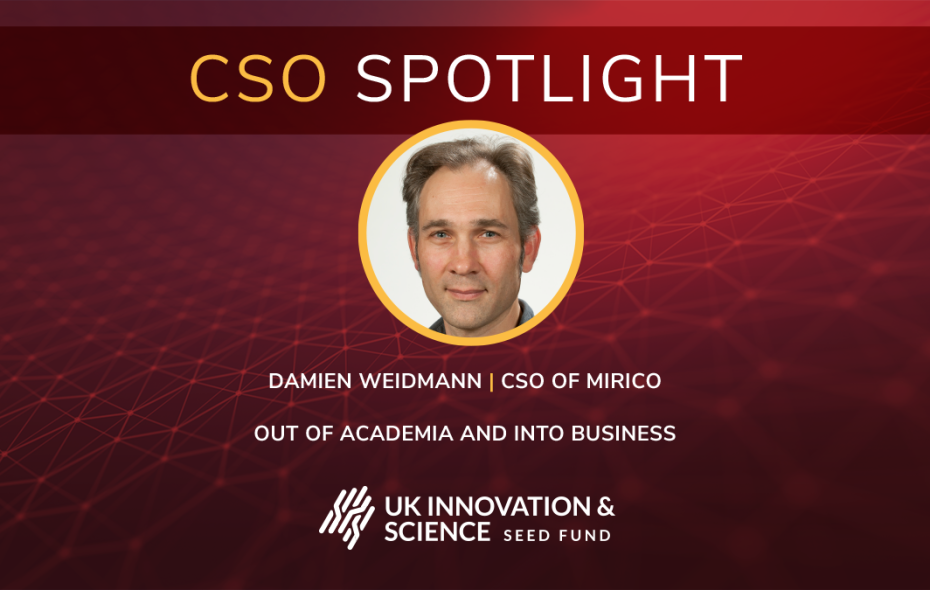
What is Mirico’s business?
The main market that we are addressing relates to greenhouse gases because of the need to measure and monitor them to control emissions. Our main activity is helping companies to simply and accurately measure their greenhouse gas emissions. This includes oil and gas processing operations and landfill sites, and allowing companies to create effective measures to reduce emissions.
What prompted you to found the company?
We embarked on research that led to the technology used in Mirico because there was no real solution for detection of gases at high enough accuracy outside a laboratory. We developed an instrument to measure a wide range of gases across large distances, overcoming limitations of rain and interfering gases, and we thought this could be an incredibly useful application for industry, together with data analysis.
What people are interested in is knowing is how much is emitted from a facility, at a certain point in time and/or from specific geographic locations. Also, technology and measurement drive regulation, there is no way you can regulate gas emissions if you can’t control them or enforce reduction targets.
What challenges have you witnessed translating technology to real-world customers?
You may be a researcher used to being driven by scientific goals, but those goals aren’t necessarily aligned with commercial needs. Often, scientists can be very confident in their ability to understand the scientific aspects of the problem, but they may not fully understand the commercial aspects.
Translating this requires a lot of discussion with prospective customers. Understanding the context and nature of their problem is critical if you want to offer the solution. This understanding is also something you need to build into your team, making sure you employ people who are familiar with how customers think and how to build a business model which works. It’s critical that science founders engage with an open mind.
Has your exploration of this commercial application of the technology changed your scientific goals? For example, shaping the science to fit the market needs?
Yes. It’s important to reset priorities to address the problem of your customers rather than trying to beat the technological ceiling.
With a scientific, curiosity-driven mind, it’s common to be interested in pushing the boundaries to deliver even better results with more precision and beyond. However, industry may not need that level of precision. Something that can work 24 hours, seven days in the rain, may be more critical than having the most precise measurement ever.
Do you think it can be difficult for scientists and academics to switch this mindset when striving for excellence is so engrained?
Like anyone, having to change is not easy. Especially if you have spent years in that state of mind. Once you realise that there are important factors other than just pushing the boundaries of the technology, your product may become more useful to address real-world problems.
Do you think we need more of that woven into academia, such as applying science to world problems like climate change and net zero? Or is there a place for keeping an academic mindset?
Increasing the exposure to real-world and commercial applications is probably very beneficial. By giving people the chance to learn more about this area, the direction people take then depends on an individual's desire. Some people would prefer to study a specific scientific problem while others may embrace a more commercial direction.
I can see there is a growing trend towards commercial exploitation, which is seeping into university and PhD level, especially when you have a spin-off company from a specific academic department.
Have you witnessed a growing interest in Mirico’s technology in the last few years? For example, a buzz around COP26 and conversations about sustainability?
Interest in measuring gases has grown with the acute issues of climate change and air quality around oil and gas and there are more activities, either undertaken by oil and gas company themselves, or driven by more regulatory body or government. We receive enquiries about Mirico’s product offering from around the world, and other sectors showing a need for this solution include, agriculture, mostly related to air quality, and waste management, for example, landfill and water waste.
However, there is often a gap between interest in an idea and developing a business model that will address it. I think we are currently in this position, where there is growing interest in us and companies are calling us more but developing the right service for a sustainable future is still something being shaped at the moment.
Is this a sticking point, where companies are not quite sure how to do commercialise their ideas?
Yes, and investors work on fairly short timescales, at least for Series A investment. While there are increasingly more investment groups with a patient outlook and passionate about positive impacts such as, Future Planet Capital (the manager of UKI2S), who are willing to take risks and understand the timescales needed, other investors aren’t necessarily patient enough for the full solution to be ready. That’s why it’s so important to find the right type of investor for each stage of a company’s growth and this is particularly important at start-up when patience and mentoring are just as essential as money to give a company’s founders the time and space to get on the right commercial path.